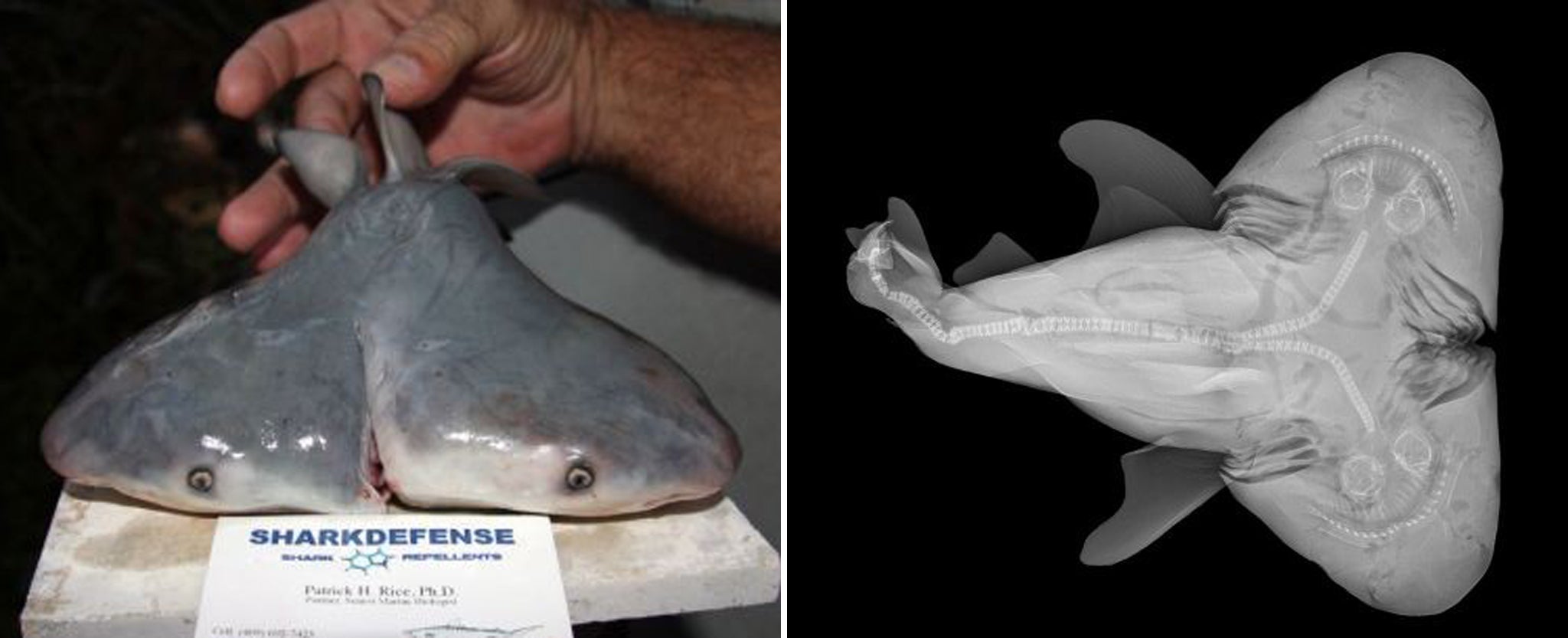It's not just any two-headed shark. It's the rarest two-headed shark ever recorded
Discovery has sent shockwaves through the world of marine biology

Scientists have confirmed that a shark found off the coast of Florida in 2011 was a single specimen with two heads, rather than conjoined twins.
The discovery has sent shockwaves through the world of marine biology, with scientists calling it the rarest two-headed shark ever recorded.
The fisherman got double what he bargained for when he caught a regular adult bull-shark on a routine trip. After opening the uterus, he found the baby.
He immediately handed the specimen, who was alive at the time, over to experts, who ran extensive tests.
A team at Michigan State University revealed the shark, which died shortly after discovery, had two distinct heads, hearts and stomachs, with the remainder of the body joining together at the back to form a single tail.
The cause of the deformity is not clear, but there have been suggestions that the Deepwater Horizon oil spill in 2010 might have been a contributing factor.
The deformity, technically known as "axial bifurcation," occurs when the embryo stops before completely splitting into two separate organisms.
Michael Wagner, a researcher at Michigan State University explained that had the shark had survived in the wild, it would not have lived long.
"When you're a predator that needs to move fast to catch other fast-moving fish ... that'd be nearly impossible with this mutation," he said.
It had very developed heads, but a very stunted body. The energy put into the developing the body reduces as a result of the development of two heads," he added.
It is thought that the investigation into the deformed shark might be helpful to further comprehend the causes of such deformities in sharks and other animals.
Join our commenting forum
Join thought-provoking conversations, follow other Independent readers and see their replies
Comments
Bookmark popover
Removed from bookmarks